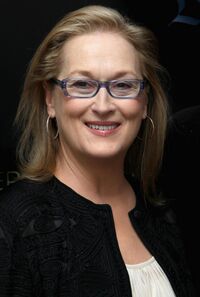Talisa Nixon
Talisa Nixon | |||||||||||||
|---|---|---|---|---|---|---|---|---|---|---|---|---|---|
 Talisa Nixon in 2020 | |||||||||||||
| Member of the Secretariat | |||||||||||||
|
Assumed office TBD | |||||||||||||
| President of the Central Party School | |||||||||||||
|
Assumed office 9 August 2005 | |||||||||||||
| Preceded by | Ishaan Steele | ||||||||||||
| |||||||||||||
| Personal details | |||||||||||||
| Born |
22 June 1949 Newark, New Jersey, American CR United Commonwealth | ||||||||||||
| Nationality | Continental | ||||||||||||
| Political party |
| ||||||||||||
| Spouse(s) | Sebastian Harvey | ||||||||||||
| Children | 2 | ||||||||||||
| Alma mater | MEL Institute (JD–MPP) | ||||||||||||
| Religion | Atheist | ||||||||||||
| Awards | See below | ||||||||||||
Talisa Nixon (born 22 June 1949) is a Continental politician and political theorist who serves as one of the highest-ranking national leaders of the United Commonwealth and of its Continentalist Party, who is a currently serving member of the 37th Secretariat since 2012, and has served as the President of the Central Party School since 2005. Head of the preeminent administrative training wing of the Continentalist Party, Nixon is considered the leading ideologist of modern Continental thought since the early 2000s. She is also the chairperson of the Commission on Internet Security and Communication and a full member of the 32nd through 37th Central Committees.
Born in Newark, New Jersey to a working class family with connections to the Continentalist Party, Nixon grew up in the Continentalist Youth League and as an agrarian volunteer in southern New Jersey, as part of a party mobilization promoting countryside service. Excelling in her academic studies, Nixon received invitation to attend Harvard University, receiving a combined Master of Arts degree in government and philosophy. After which she attended the Marx–Engels–Landon Institute where she graduated with a JD-MPP (Juris Doctor and Master of Public Policy) with an emphasis on Marxist–Landonist theory in 1977. She stayed at the Institute doing research work as an associate professor of international politics at age 29, and also became a party bureaucrat with the Chicago Publishing Bureau. In 1979 Nixon joined the Continentalist Party. She would be promoted to director of the International Politics department in 1992. During this period Nixon became frequently published in academic journals, magazines, and state newspapers, including the People's Daily. She also served as a visiting scholar, spending six months in Sierra, including three months as Mulholland University, as well as universities in Superior and Quebec. By the early 1990s Nixon's publications gained the attention of national officials, who consulted with Nixon on theoretical documents, and in 1993 Nixon was elected to the Continental People's Political Consultative Conference by the recommendation of the Continental Journalist Union. At the behest of Aeneas Baker, a close associate of then General Secretary Jackson Rothko, Nixon was appointed to the head of the political research department of the Central Party School in 1996. She would later become head of the school entirely in 2005.
In 2001 Nixon was elected to the 32nd Central Committee, at which point she is believed to have become a key advisor to Rothko and subsequent general secretaries. She would later be elevated to the Secretariat. As an ideologist, Nixon would have a hand in crafting or advising on much of the party's central policy from the 2000s on. Early in her career Nixon was regarded as a key "neoconservative" for her defense of strong leadership, in the name of continued political stability and reform. She revitalized the Golden Law of Landonism as ideological justification for a number of Rothko-era policies, and was a key author on his 21st-century modernization efforts. She helped coin the "Common Future Community", or the foreign-policy goal of expanding Continental efforts to "forge a shared path for the global community", which has manifested in increased funding for Third World nations and increased interest in global cooperation. Considered a pragmatist, Nixon supported the rise of Anthony Malito, but approved of the appointment of Daniel Muir as his successor.
Early life
Academic career
Political career
Political positions
Personal life
Awards
Bibliography
See also
- E-class articles
- Altverse II
- Continentals (Altverse II)
- Continental politicians (Altverse II)
- 1949 births
- 20th-century Continental non-fiction writers
- 20th-century Continental journalists
- 20th-century Continental politicians
- 20th-century Continental women writers
- 20th-century Continental writers
- 20th-century political scientists
- 20th-century Continental women politicians
- 21st-century Continental journalists
- 21st-century Continental non-fiction writers
- 21st-century Continental politicians
- 21st-century Continental women politicians
- 21st-century Continental women writers
- 21st-century Continental writers
- 21st-century political scientists
- Living people
- Central Committee of the Continentalist Party of the United Commonwealth members
- Central Party School alumni
- Continental atheists
- Continental political philosophers
- Continental political scientists
- Continental political writers
- Continental women journalists
- Continentalist Youth League of the United Commonwealth members
- Harvard University alumni
- MEL Institute alumni
- MEL Institute faculty
- Members of the Continental People's Political Consultative Conference
- People from Newark, New Jersey
- Secretariat of the Central Committee of the Continentalist Party of the United Commonwealth members
